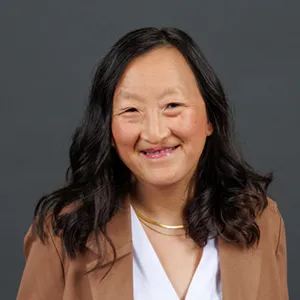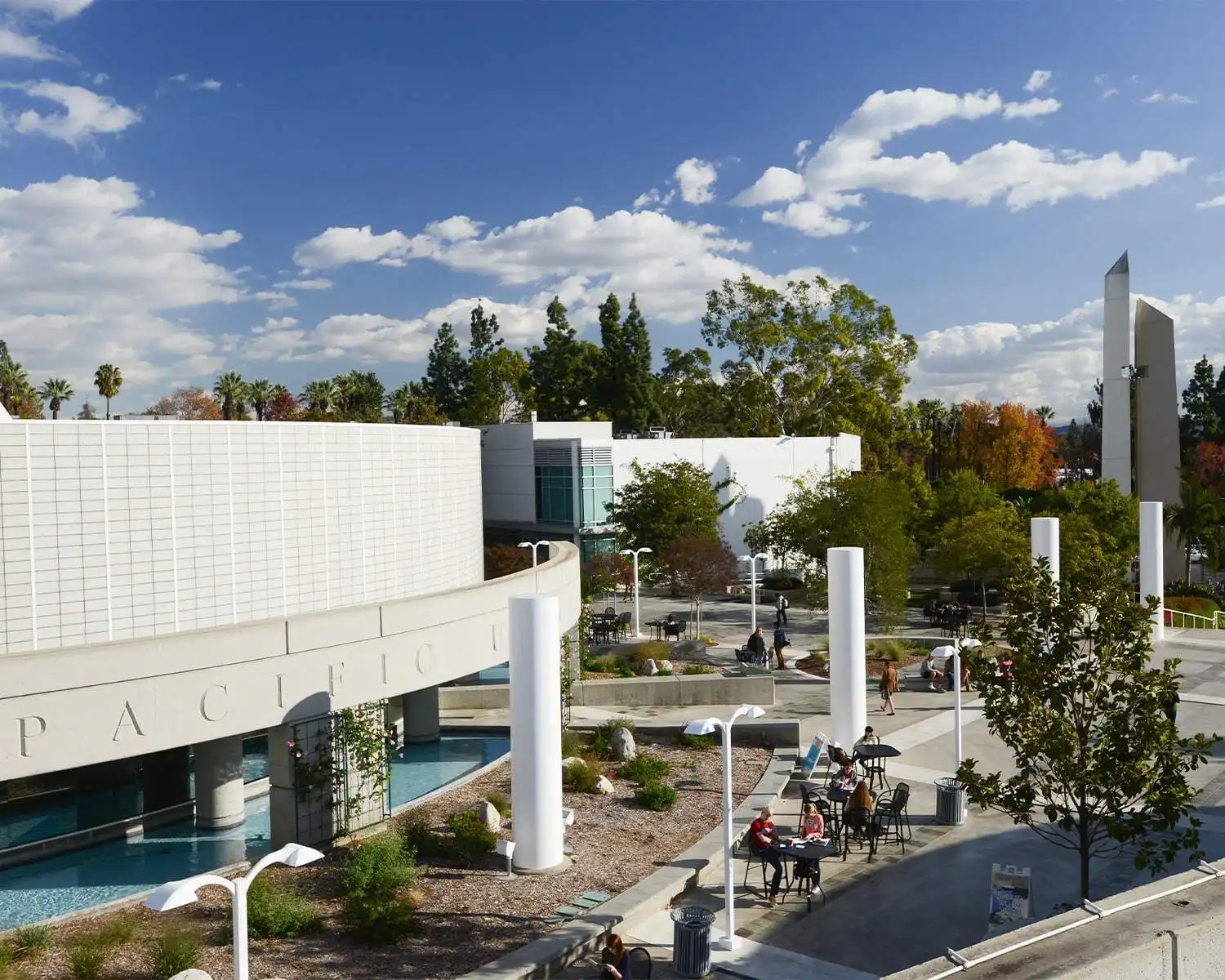
Faculty Governance
Representing and Assisting Faculty

Faculty governance falls under the larger umbrella of shared governance, a critical and prominent aspect of higher education, as it pertains to academic affairs and underscores three key components: communication, responsibility, and decision making. As faculty moderator, I will strive to improve transparency and timeliness of information, encourage data-backed decisions, and increase trust between faculty and administrators, which is an essential dynamic for the legitimacy and success of faculty governance. Faculty governance involves power sharing and influencing the process, and this can be done only with greater representation of all faculty. I will be seeking your voices, collaboratively engaging faculty to assure that all who are present will be heard and represented.
Finally, at the heart of what makes faculty governance effective and trusted is faculty engagement in the decision-making process. This requires skills of organizing around key faculty-raised issues, negotiating competing and often opposing interests, and building collaboration to reach consensus. I rest on my sociological expertise to affirm that interdependence is the key to consensus building. Social solidarity and commitment to one another will increase efficacy and credibility in the work we do. My leadership as faculty moderator will be grounded in a faith-based sensibility of collective responsibility and a profound respect for the community, as well as a recognition of APU’s cornerstone mission to cultivate Christ-centered scholarship and service. I look forward to working with all faculty in this upcoming school year.
Nori Henk, PhD
Professor, Department of Sociology, TESOL, and Modern Languages
[email protected]
Governing Bodies
Faculty governance at APU is organized into a representative faculty body, the faculty senate, which consists of elected senators from each academic unit (1 senator for every 15 full-time faculty members in each unit). In addition, there are 3 at-large senators who are elected to represent the entire faculty. The faculty senate is charged with bringing efficiency to governance processes and procedures, overseeing faculty councils, facilitating communication between faculty units and other representative groups, and representing the faculty to the Board of Trustees, the administration, staff, students, and the general community.
The presiding officer of the faculty senate is the faculty moderator, who is elected by the entire body of full-time faculty. The senate agenda is set by the moderator with assistance from the steering committee, which consists of the moderator-elect (or past moderator), senate secretary, senate parliamentarian, senate historian, and a senate representative.
Faculty councils are administrative bodies of faculty members and administrative personnel that implement policies set by the faculty senate and report to the faculty senate. Councils serve as the administrative, academic, and policy advisors to the senate and assist the senate in fulfilling its purpose and duties.
Committees are integral subunits of the Faculty Senate or of councils with specific charges as designated in the committee purpose statements.
Faculty Development Committee
This committee advises the Center for Teaching, Learning, and Assessment in order to promote a culture of excellence in the practice and scholarship of teaching. This committee meets on an as-needed basis.
Faculty Elections Committee
This committee ensures that an efficient and orderly process is implemented to select the faculty moderator-elect and at-large faculty members to serve on the Faculty Senate and designated faculty councils, committees, and review boards.
Chair: Patricia Esslin
Handbook Review Committee
This committee ensures that the Faculty Handbook provides clear and consistent procedures for faculty to follow as they fulfill their duties at APU.
Chair: Nori Henk
Senate Steering Committee
This committee is composed of the faculty moderator, moderator-elect or past moderator or vice moderator, secretary, parliamentarian, senate historian, and one senate member elected by the Faculty Senate at the first meeting of the fall semester to serve a one-year term on the Senate Steering Committee. This committee is responsible for tracking and follow up with the administration on all action items from the various councils, committees, and the senate as a whole, and sets the agenda for Faculty Senate.
Members:
- Nori Henk, Moderator
- Christopher Noble, Moderator-Elect
- Christina Bivona-Tellez, Historian
- Justin Marc Smith, Secretary
- Christopher Leland, Senate Representative
- Alan Oda, Parliamentarian
Diversity Council
This council affirms and values the nature of diversity and promotes the establishment and further support of university educational policies, practices, and programs related to the understanding and appreciation of diversity from a biblical viewpoint. It represents the academic arena and extended community of the university in matters pertaining to diversity and community demographic balance.
Chair: Alan Oda
Doctoral Studies Council
Oversees the quality and effectiveness of doctoral programs through ongoing review and development of academic policies and programs associated with doctoral studies at APU.
Chair: David Harmeyer
Faculty Evaluation Council
This council oversees the Faculty Evaluation System (FES), evaluating the quality and effectiveness of all components of the FES and recommending changes to the FES, including the review of appropriate issues in need of clarification or resolution.
Chair: Kevin Huang
Faculty Research Council
Promotes and supports a culture of scholarship at the university through the following activities: awarding internal research funds for faculty research, advocating for greater institutional support for faculty and graduate and undergraduate student research, promoting safe and ethical conduct and dissemination of research, and affirming and encouraging scholarly activities of the highest quality.
Chair: Sandor Volkan-Kacso
Faith Integration Council
This council governs faith integration and assists the Office of Faith Integration through the following activities: advancing and implementing faith integration policies, advising the Office of Faith Integration in relation to faculty development in the area of academic faith integration, and serving as knowledgeable and available resource mentors for departments/schools and the faculty colleagues they serve and represent.
Chair: William Whitney
General Education Council
This council evaluates and approves general education credit and monitors the direction and effectiveness of the general education program.
Chair: Matthew Heller
Master’s Studies Council
Oversees the quality and effectiveness of graduate-level programs through ongoing review and development of academic policies and programs associated with master’s education, graduate continuing education, and master’s-level accelerated degree programs at APU.
Chair: Kenton Walkemeyer
Professional Studies Council
This council oversees the quality and effectiveness of professional programs through ongoing review and development of academic policies and programs associated with professional education at APU. Professional education in this context is defined as nontraditional undergraduate degree programs that are administered through the Graduate and Professional Center.
Chair: Elsa Murdoch
Undergraduate Studies Council
Oversees the quality and effectiveness of undergraduate programs through ongoing review and development of academic policies and programs associated with undergraduate education and undergraduate-level accelerated degree programs at APU.
Chair: Mark Cawman
Workload and Compensation Council
This council provides a mechanism for dialogue and policy development on issues related to faculty workload and compensation.
Chair: William Ingersoll
Current Roster
Moderator
Senators-at-Large
School of Humanities and Sciences
School of the Arts
- Kirsten Humer
- Christopher Leland
- Jill Lincoln
Honors College
School of Behavioral Sciences
- Daniel Farwell
- Alan Oda
- Mary Rawlings
- Candice Hodge
- Donna Gallup
- Stephen Lambert
School of Business and Management
School of Education
School of Nursing
2021-22
School of Humanities and Sciences
School of the Arts
- Laurie Leinonen
- Christopher Leland
- Jill Lincoln
Honors College
School of Behavioral Sciences
- Julianne Edwards
- Daniel Farwell
- Karen Longman
- Alan Oda
- Mary Rawlings
- Louis Tuthill
- Candice Hodge
School of Business and Management
School of Education
School of Nursing
- Pam Cone
- Meaghan Ellis
- David Picella
- Nicole Ringo
School of Theology
- Jennifer Buck
- Timothy Finlay
- Justin Smith
2020-21
Moderator
- Joshua Morris (CLAS)
Vice Moderator
- Edgar Barron
Senators-at-Large
- Carole Lambert (CLAS)
- Brian Collisson
- Jon Milhon (CLAS)
School of Humanities and Sciences
- Christopher Noble
- Douglas Hume
- Nori Henk
- Marcela Rojas
- George Thomas
- César Aroldo Solórzano
School of the Arts
- Laurie Leinonen
- Zach Cheney
- Christopher Leland
- Monica Ganas
Honors College
School of Behavioral Sciences
- Alan Oda
- Eric Sorenson
- Karen Longman
- Louis Tuthill
- Julianne Edwards
- Shawna Lafreniere
- Candice Hodge
- Mary Rawlings
School of Business and Management
- Marie Carasco
- Changhyun Kim
School of Education
School of Nursing
- David Picella
- Diane Sadoughi
- Nicole Ringo
- Pam Cone
- Christina Bivona-Tellez
- Lynn Woods
School of Theology
- Jennifer Buck
- Justin Smith
- Timothy Finlay
University Libraries
- Luba Zakharov
2019-20
Senators-at-Large
- Carole Lambert (CLAS)
- Kevin Huang (CLAS)
- Patricia Skalnik (SBM)
School of Humanities and Sciences
- Christopher Noble
- Douglas Hume
- Nori Henk
- Marcela Rojas
- Ethan Schrum
School of the Arts
- Laurie Leinonen
- Zach Cheney
Honors College
School of Behavioral Sciences
- Alan Oda
- Eric Sorenson
- Karen Longman
- Louis Tuthill
- Edgar Barron
- Shawna Lafreniere
- Candice Hodge
- Jennifer Payne
- Laurie Schreiner
School of Business and Management
School of Education
- Tammy Bachrach
- Craig Bartholio
- Jessica Cannaday
School of Nursing
- David Picella
- Diane Sadoughi
- Nicole Ringo
- Pam Cone
- Christina Bivona-Tellez
- Lynn Woods
School of Theology
- Rico Vitz
- Jennifer Buck
- Justin Smith
University Libraries
- Shelley Harrell
2018-19
Moderator
- Loren Martin
Past Moderator
- Pam Cone
Senators-at-Large
- Kevin Huang
- Carole Lambert
- Patricia Skalnik
School of Humanities and Sciences
- Matt Berezuk
- Eric Davis
- Douglas Hume
- Jon Milhon
- Marcela Rojas
- Ethan Schrum
School of the Arts
- David Beatty
- Monica Ganas
- Phil Shackleton
School of Behavioral Sciences
- Edgar Barron
- Candice Hodge
- Shawna Lafreniere
- Stephen Lambert
- Chris Patterson
- Jennifer Payne
- Laurie Schreiner
- William “Jody” Wilkinson
School of Business and Management
School of Education
- Tammy Bachrach
- Craig Bartholio
- Jessica Cannaday
School of Nursing
- Rose Theresa Anderson
- Christina Bivona Tellez
- Melinda Dicken
- Viann Duncan
- Rebecca Kolb
- Pamela Milligan
- Lynn Woods
2017-18
Moderator
- Pam Cone
Moderator-elect
- Loren Martin
Senators-at-Large
- Kevin Huang
- Stephen Lambert
- Patricia Skalnik
Azusa Pacific Seminary
- Josh Rasmussen
- Kent Walkemeyer
School of Humanities and Sciences
- Matt Berezuk
- Eric Davis
- Eric Drewry
- Kevin Huang
- Douglas Hume
- Jon Milhon
- Ethan Schrum
School of the Arts
- Monica Ganas
Honors College
School of Behavioral Sciences
- Edgar Barron
- Candice Hodge
- Stephen Lambert
- Jennifer Payne
- Mary Rawlings
- Laurie Schreiner
- William (Jody) Wilkinson
School of Business and Management
- Patricia Skalnik
- Thomas Buckles
School of Education
- Jessica Cannaday
- Ying Jiang
- Greg Kaiser
School of Nursing
- Rose Theresa Anderson
- Melinda Dicken
- Viann Duncan
- Catherine Heinlein
- Jade Kay
- Pamela Milligan
- Sheryl Nespor
- Diane Sadoughi
University Libraries
- Shelley Harrel
2016-17
Moderator
- Pam Cone
Senators-at-Large
BAS
- Stephen Lambert
- Kathy Putman
- Mary Rawlings
- William (Jody) Wilkinson
CLAS
- Matt Berezuk
- Eric Davis
- Eric Drewry
- Kevin Huang
- Douglas Hume
- Jon Milhon
CMA
- Monica Ganas
- Jill Lincoln
Honors College
Education
- Jessica Cannaday
- Ying Jiang
- Greg Kaiser
Libraries
- Maria Pacino
Nursing
- Rose Theresa Anderson
- Melinda Dicken
- Patricia Esslin
- Catherine Heinlein
- Jade Kay
- Pamela Milligan
- Sheryl Nespor
- Jill Olausson
SBM
- Patricia Skalnik
- Thomas Buckles
Theology
- Josh Rasmussen
- Kent Walkemeyer
2015-16
Education
- Jessica Cannaday
- Ying Jiang
- Greg Kaiser
Libraries
- Maria Pacino
Nursing
- Najood Azar
- Pam Cone
- Patricia Esslin
- Janice Haley
- Catherine Heinlein
- Sheryl Nespor
- Nicole Ringo
- Lynn Woods
Faculty Resources
The following resources are available to assist faculty:
- 2022-23 Council Minutes Folder
- Faculty Grievance Form (PDF)
- Self-Nomination Form: This form will be available during the next election cycle in 2023.
- Faculty Elections: There is no current election information. The next election cycle will take place in 2023.
